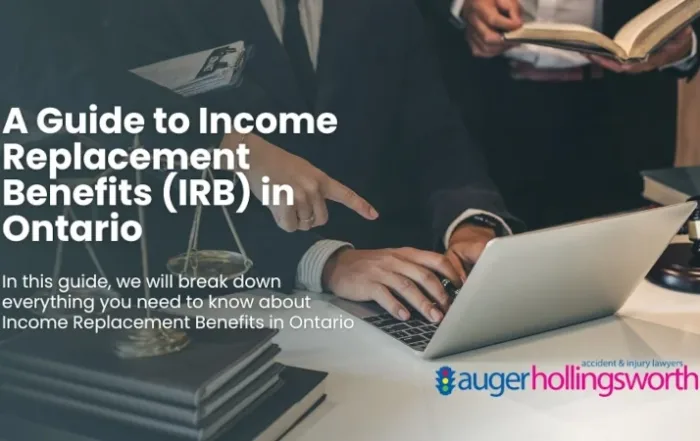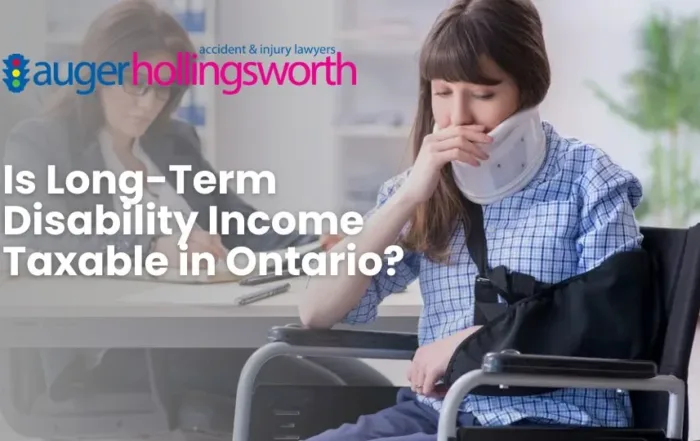June Ends with Two Positive Decisions for Personal Injury Clients

It’s easy to be jaded as a personal injury lawyer in Ontario.
Between 2010 and 2018, there were 17 changes made to auto insurance in our province and 16 of them made life worse, not better, for accident victims.
Tort insurers have taken rigid positions on negotiation of smaller cases which are not made on a rational risk assessment basis. Insurers stand their ground on these cases just because they feel they can, not because their position is correct.
Likewise, accident benefit insurers who now only must cover benefits for 5 years, stretch out all decision-making times to minimize the number of treatment plans that can be submitted.
But today I feel a lot of hope thanks to two favourable court decisions released last week.
1. Persaud v. Bascom 2021 ONSC 4398 – It’s a threshold not a barricade
In Persaud, released June 18, 2021, Justice Ferguson recognized that limitations in a person’s activities of everyday living were enough to meet the threshold for damages for pain and suffering in the Insurance Act.
This is an important development since in recent years certain insurers have taken an approach that only impairments approaching the catastrophic level of injury will satisfy the threshold. Justice Ferguson holds the test in the legislation is just not that hard. As he states:
The plaintiff’s impairments are serious in that they prevent him from engaging in activities that are important to the usual activities of daily living, considering his age. They have interfered with his activities of daily living, housekeeping, home maintenance, playing with his grandchildren, going to the park, and walking in his neighbourhood. These things were very important to the plaintiff.
Dr. Nesathurai testified that the plaintiff was unable to perform many activities around the household due to his pain arising from the injuries sustained in the motor vehicle collision. Dr. Nesathurai also testified that the plaintiff was not able to engage in certain recreational activities with his grandchildren which had been very important to him. Although he still drives, his driving has diminished. Even with the daily use of medications and extensive therapy, the plaintiff’s pain continues. It curtails a significant number of activities that the plaintiff was able to do prior to the accident and the pain has resulted in the plaintiff isolating himself from other people. The plaintiff’s wife, daughter and son in law also testified as to these restrictions and I accept their evidence.
This case is great news for plaintiffs in car accident cases who have been frustrated by insurers who refuse to pay based on an interpretation of the law that is just not supportable.
2. Moore v. 7595611 Canada Corp. 2021 ONCA 459 — Justice for wrongful death
One of the hardest discussions personal injury lawyers have with clients is the discussion where we explain how low the damages are for wrongful death cases. It has been truly an awful experience explaining to grieving loved ones that the compensation for the loss of your child or spouse is unlikely to get to $200,000.
We took these clients through the existing case law, and explained the court’s rationale, but it never felt good, or right.
In Moore, released June 25, 2021, the Court of Appeal recognized the horror of the loss of a child and upheld a jury award of $250,000 per parent for loss of care, guidance and companionship following the death of their 24-year-old daughter.
The court held:
[W]hile the jury award was undoubtedly high, it was not “so inordinately high” that it would “shoc[k] the conscience of the court”…In the circumstances of this case, there is therefore no basis to interfere with the jury’s award of $250,000 for loss of care, guidance, and companionship damages to each respondent.This case will have an immediate and profound impact on wrongful death cases across Ontario and is most welcome. While there is no amount of money that truly compensates for the loss of a loved one, the previous amounts awarded often felt like a slap in the face to deserving family members who lost a loved one through someone else’s negligence.














